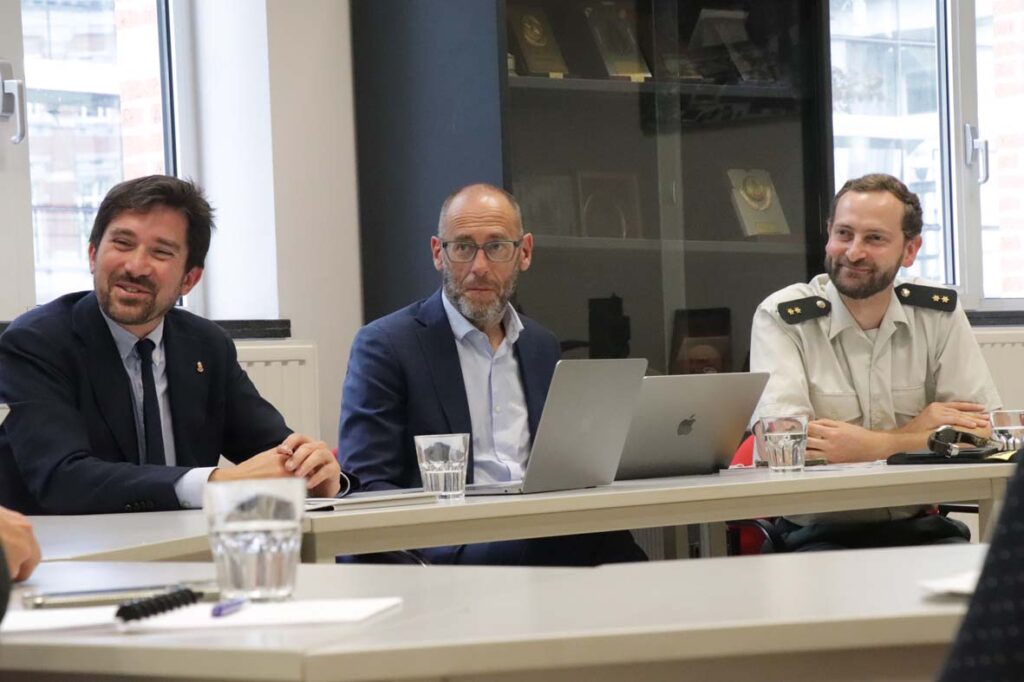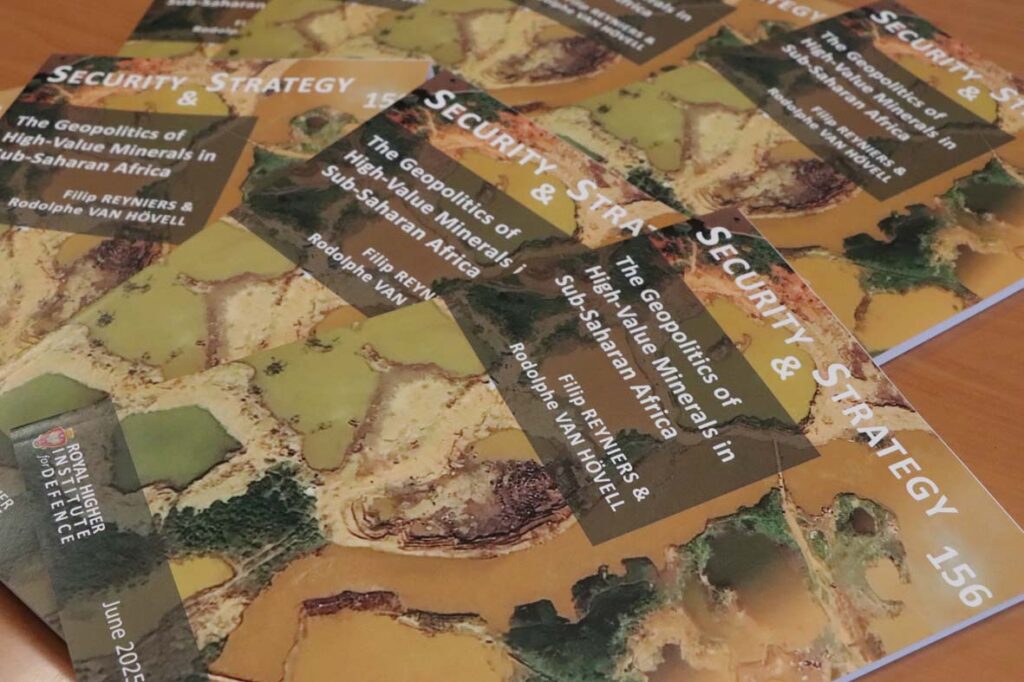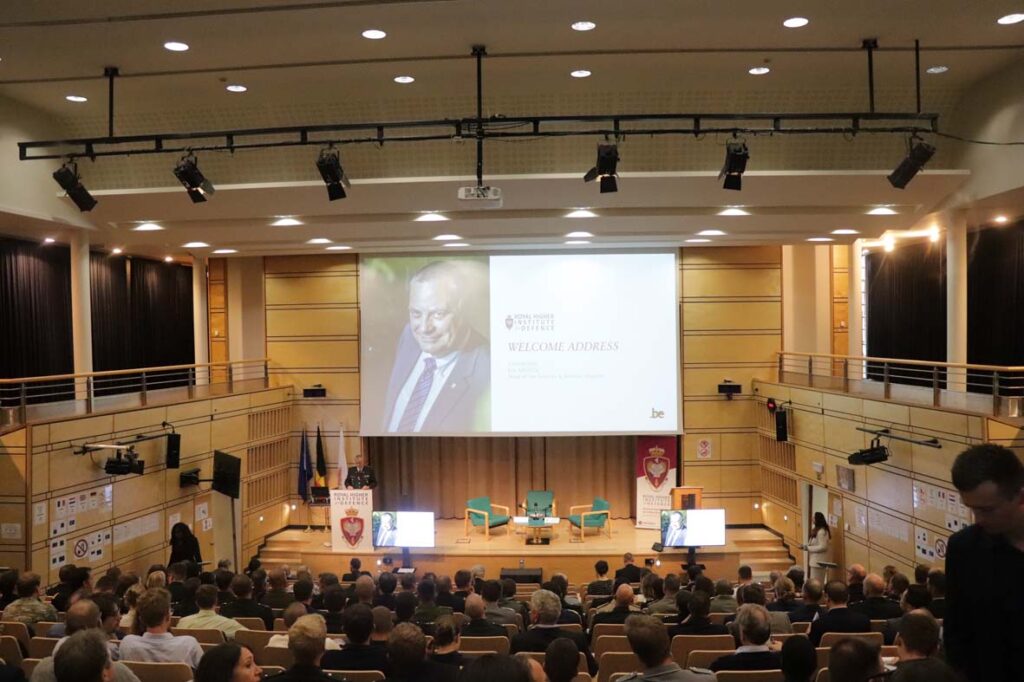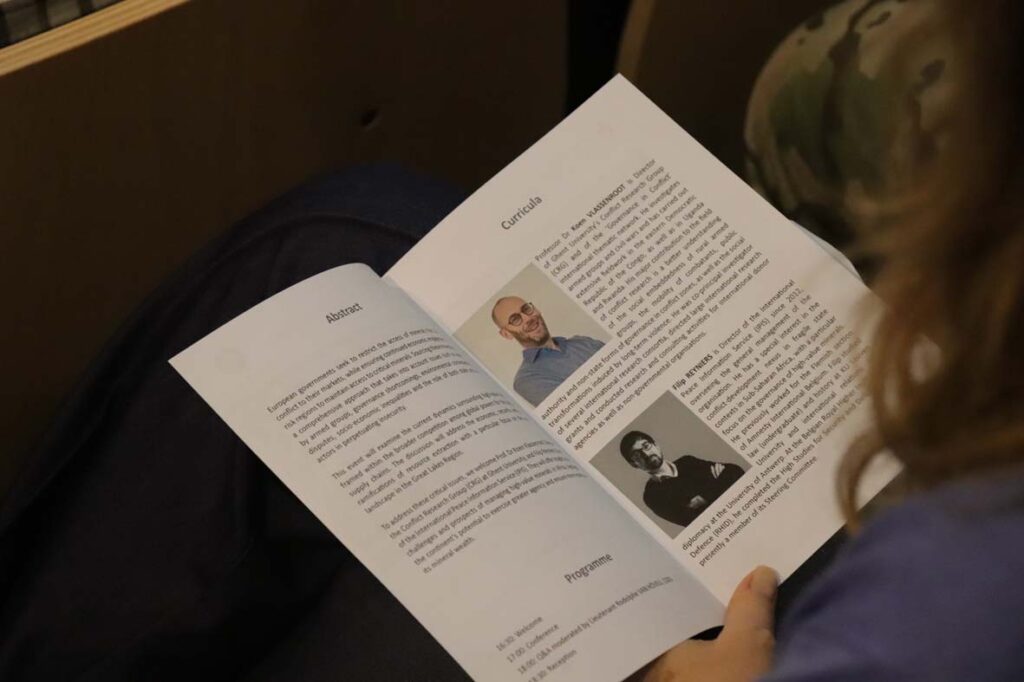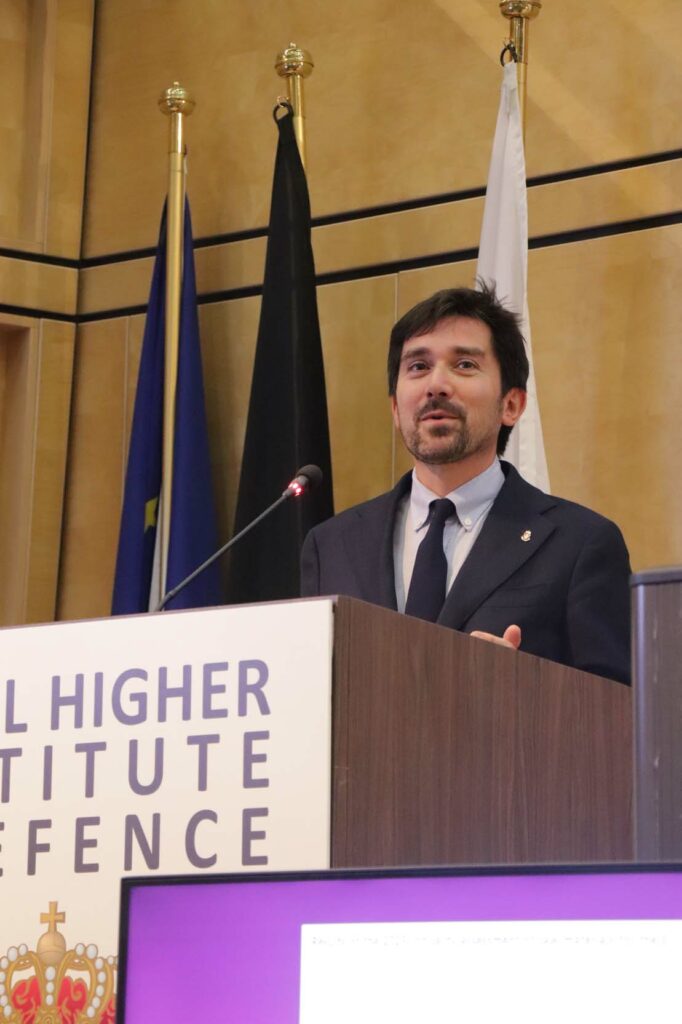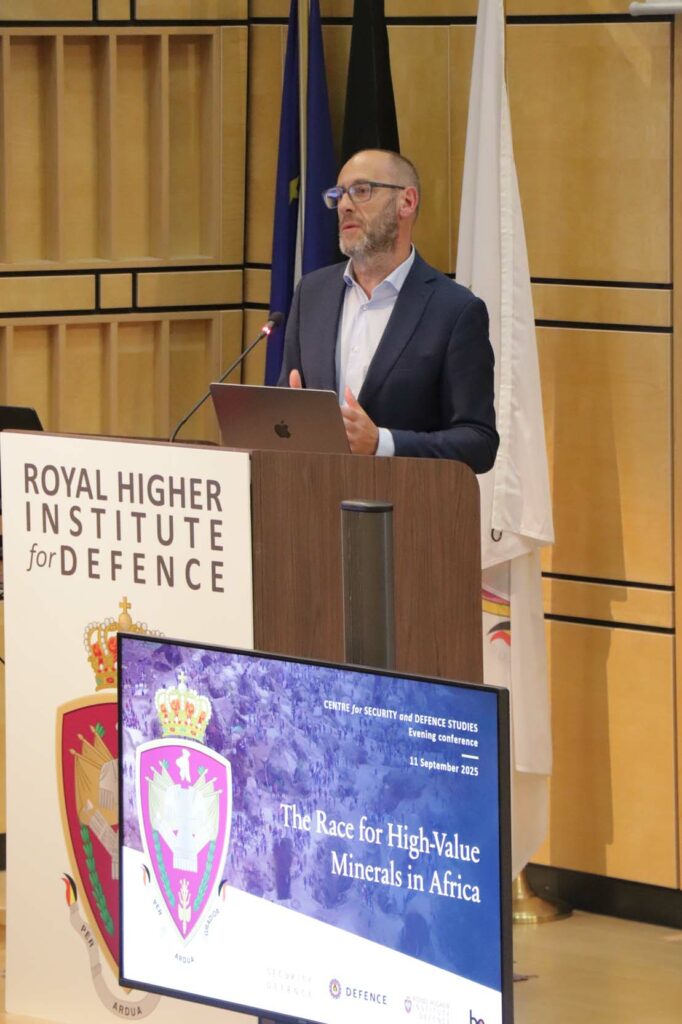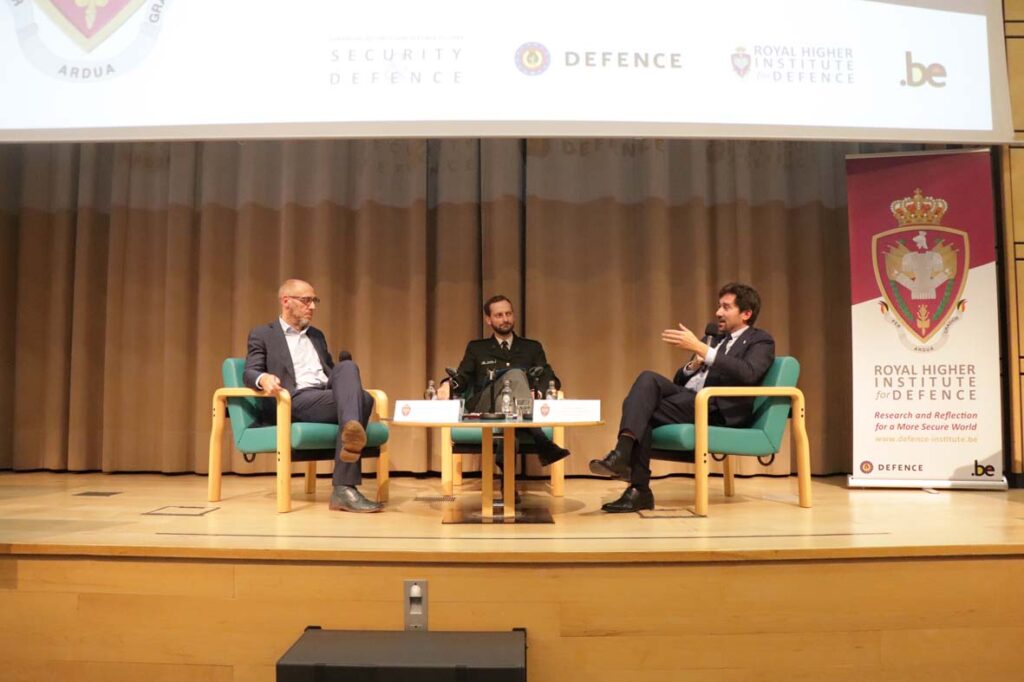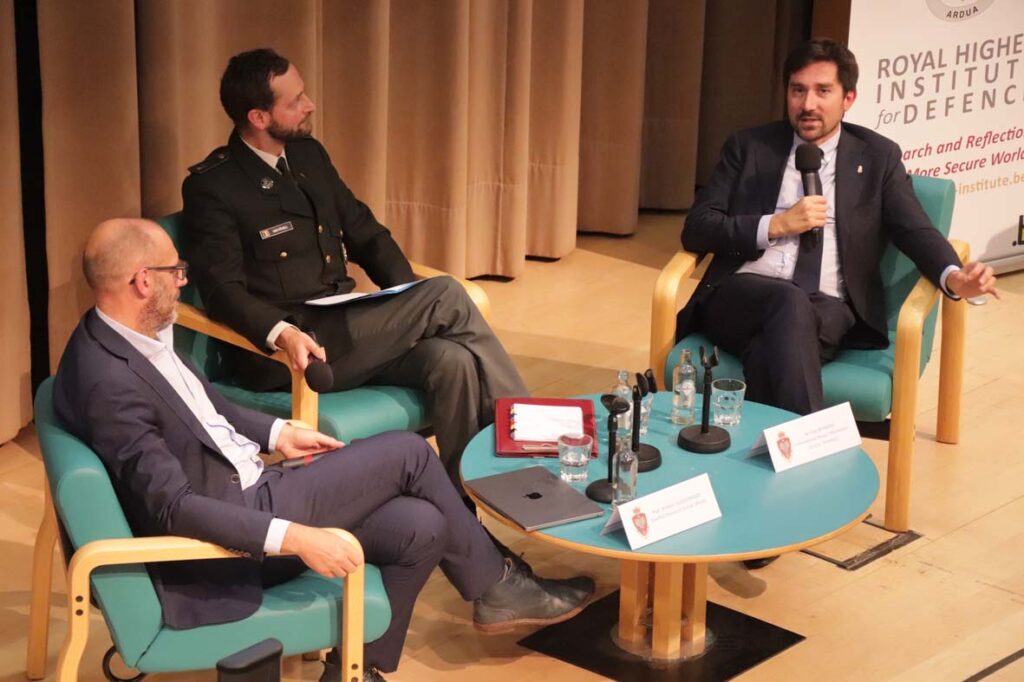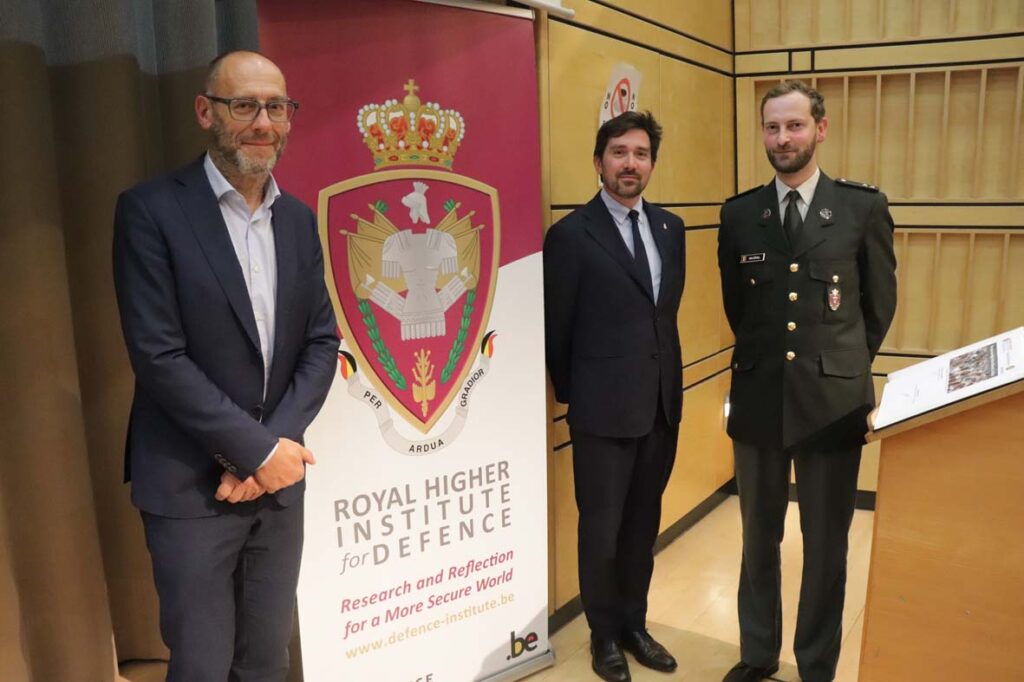
RHID opens dialogue on African and geopolitical challenges
On 11 September 2025, the Centre for Security and Defence Studies (CSDS) organised a day of reflection dedicated to African and geopolitical issues. The event unfolded in two parts: a closed round table followed by a public evening conference.
A round table on Belgian engagements in Africa
The round table, entitled “Rethinking Belgian Engagements in Africa : Strategic Choices Amid Geopolitical Competition”, brought together representatives from Belgian Defence, the Ministry of Foreign Affairs, and the academic world. Two key themes were addressed:
- The race for strategic minerals in Africa, introduced by Filip Reyniers (Director of the International Peace Information Service – IPIS).
- The emergence of a multipolar world, presented by Prof. Dr Koen Vlassenroot (Director of the Conflict Research Group, Ghent University).
This exchange enabled operational, diplomatic, and academic perspectives to be brought together in a context marked by global competition for resources and a redefinition of geopolitical balances.
Evening conference
The Race for High-Value Minerals in Africa
Mr Filip REYNIERS
Prof. Dr Koen VLASSENROOT
Moderator: Rodolphe van HÖVELL
📌 Also worth reading:
The Geopolitics of High-Value Minerals
in Sub-Saharan Africa
Filip REYNIERS & Rodolphe VAN HÖVELL
🗓️ Next conference: 23 October 2025
A public conference to continue the debate
In the evening, the CSDS opened its doors to the wider public. Following an opening address by Colonel Éric Kalajzic, Director of the Security & Defence Division, the discussions explored the issue of critical minerals and their role in conflict dynamics and international cooperation.
Critical minerals: cobalt, uranium and rare earths
In his presentation, Filip Reyniers highlighted the importance of critical minerals such as cobalt, uranium, and rare earth elements. These resources play a central role in the energy transition and the development of modern technologies, from electric batteries to smartphones and advanced military equipment.
He explained that every stage of the supply chain remains vulnerable to geopolitical, economic, or security disruptions, creating a structural fragility. Europe, in particular, finds itself in a position of significant dependency on China, which controls a large share of the extraction, refining, and distribution of these raw materials.
Finally, Reyniers stressed that this dynamic is not limited to competition between major powers. It also has local repercussions. In certain regions of Africa, resource exploitation indirectly fuels conflict, when revenues generated from extraction are used to finance armed groups or militias. This reality underlines the complexity of an issue that lies at the intersection of economic interests, geopolitical strategies, and human security concerns.
Conflicts and peace processes in Central Africa
The second presentation, delivered by Prof. Dr Koen Vlassenroot, focused on conflict dynamics in Central Africa, and particularly in the Democratic Republic of Congo. He noted that international approaches to conflict resolution too often adopt a transactional logic, among others, focused on access to strategic resources, limiting themselves to negotiating economic compromises.
According to him, this narrow vision obscures essential dimensions. Conflicts in Central Africa cannot be understood solely through the lens of economic interests; they are also shaped by social, political, and historical factors, which define power relations at both local and regional levels. Overlooking these elements risks weakening peacebuilding initiatives in the long term.
The professor also emphasised the ambivalent role of natural resources in these dynamics. While they often fuel tensions by serving as a source of funding for armed actors, they can also become levers for stabilisation when integrated into robust institutional frameworks supported by the international community.
Debate and perspectives for the European Union
Moderated by Lieutenant Rodolphe van Hövell, CSDS researcher and specialist on the Sahel and sub-Saharan Africa, the experts debated among themselves and with the audience about the direct implications of these issues for the European Union. The discussion highlighted how the question of natural resources extends far beyond the African context and is part of a broader reflection on Europe’s industrial and energy future.
The speakers recalled that the European Union is heavily dependent on access to critical minerals, which are indispensable to its ecological and digital transition. This dependency raises a crucial dilemma: how to secure supply chains without falling into a logic of exploitation that would weaken producing countries and fuel new cycles of violence?
Several avenues were explored, including strengthening fair partnerships with African states, implementing traceability mechanisms to combat the illegal trade in minerals, and investing in local development initiatives. The experts stressed that Europe cannot limit itself to an extractive policy; it must contribute to the creation of local value chains, enabling African countries to derive genuine and lasting benefits from their own resources.
Conclusion: beyond economic issues
Through the CSDS, the Royal Higher Institute for Defence (RHID) demonstrates its ability to bring together diplomats, military officers, researchers, and citizens around shared reflections on contemporary geopolitical challenges. This conference showed that issues linked to critical minerals and conflicts in Africa are not limited to economic or industrial considerations, but directly concern tomorrow’s political, social, and security choices.
These reflections perfectly illustrate the purpose of the Evening Conferences organised by the CSDS: to provide a platform for dialogue on topics relating to geopolitics, international security, and Belgium’s position on the global stage. Held monthly, these events invite a broad audience to debate major strategic challenges that shape our collective future.
To ensure you do not miss any of these gatherings and to stay informed about upcoming themes, simply subscribe to our newsletter. Each month, you will receive all practical details and announcements of forthcoming conferences straight to your inbox.
Research lines: Sahel and Sub-Saharan Africa ; Europe
Source image: © MONUSCO/Sylvain Liechti

